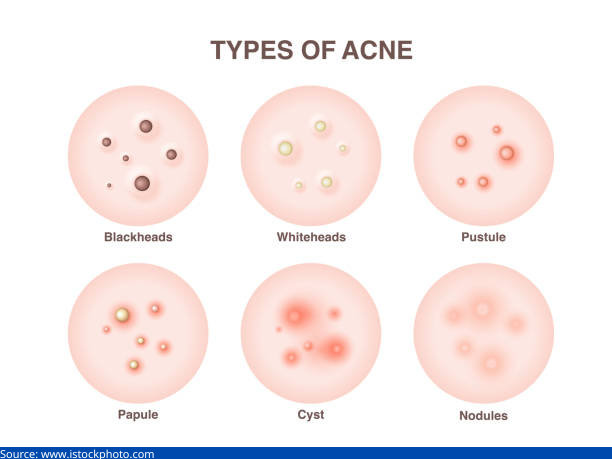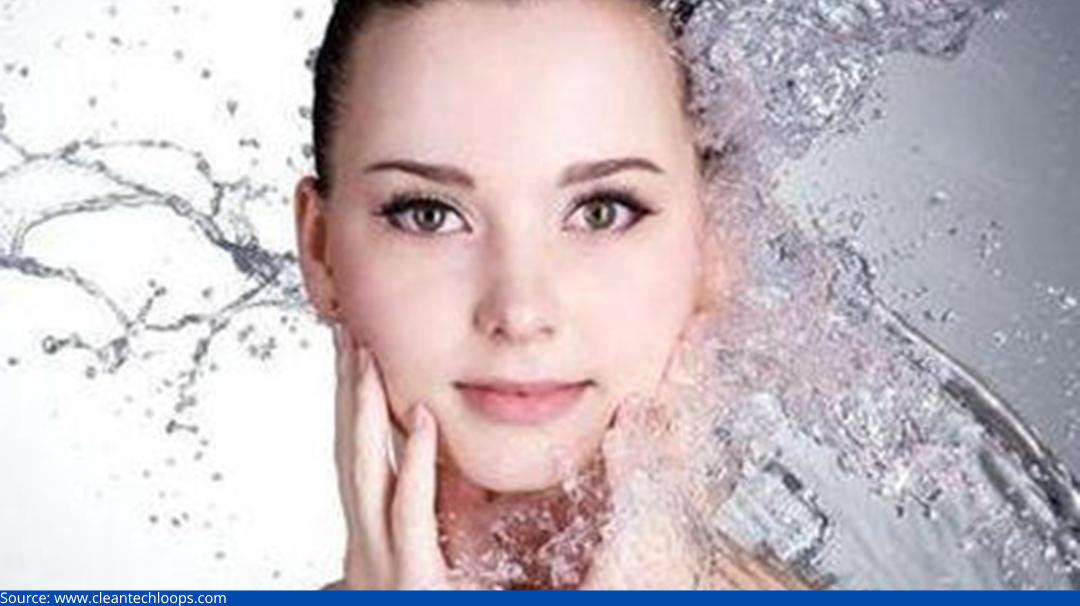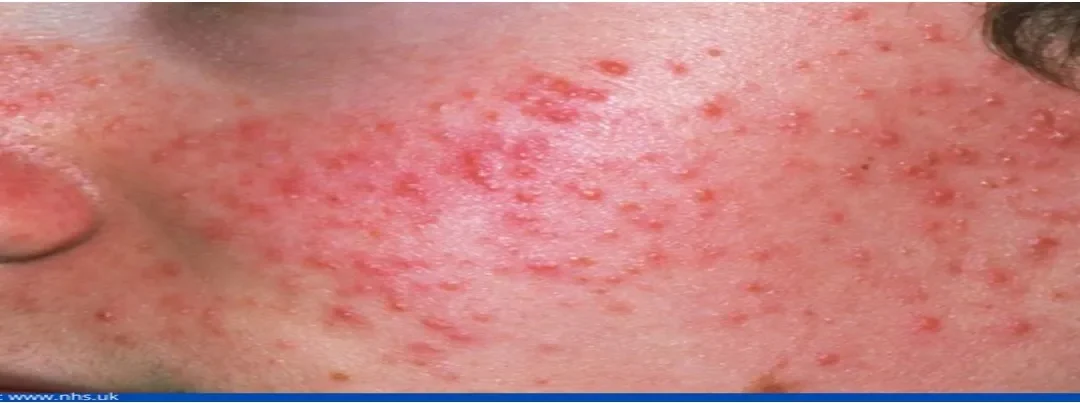Acne is a prevalent skin condition that can affect people from all age groups and occurs when the hair follicles on your skin become clogged with dead skin cells and oil.Acne-prone skin is often characterized by large pores, an oily skin, and breakouts. It appears in the form of pimples, blackheads, whiteheads, etc., on the skin.
If your acne condition is preventing you from living your life to the optimum, please consult with the eminent dermatologist, Dr. Archit Aggarwal, for effective treatment options. He is the founder of KDC Clinic, a world-class hair and skin clinic in Faridabad, and has helped many people combat various skin conditions.
In this article, we shall understand the causes and different types of acne, preventive measures, and treatment options.
What causes acne?
Acne is caused by a number of factors, including hormonal changes, certain medications, excess oil production, clogged pores, bacteria, inflammation, and even stress. While there is no cure for acne, there are several treatments that can help you control it.
What are the different types of acne?

Acne is a broad term that covers various types of blemishes that can occur on the skin. The most common include blackheads, whiteheads, papules, pustules, nodules, and cysts.
- Blackheads
Blackheads are small, dark-colored bumps that develop when pores become clogged with oil and dead skin cells. They are not infected but can sometimes become irritated and inflamed. The head of these bumps remain open even though the rest of it is blocked.
- Whiteheads
Whiteheads are small, white bumps that develop when pores become clogged with oil and dead skin cells. Unlike blackheads, whiteheads are closed at the surface of the skin, which can make them more challenging to treat.
- Papules
Papules are small, red, inflamed bumps that often appear in clusters. Dr. Archit Aggarwal, often regarded as the best dermatologist in Faridabad, says that papules can be painful to the touch and may be a sign of a more severe problem, such as cystic acne.
- Pustules
Pustules are similar to papules, but are larger and contain pus. They can be painful and should not be squeezed, as this can cause infection.
- Nodules
Nodules are large, hard bumps that develop deep in the skin. They are often very painful and can last for weeks or months.
- Cysts
Cysts are large, pus-filled bumps that develop deep in the skin. They are often very painful and can last for weeks or months.
What is the severity of the various acne types?
Blackheads and whiteheads are the least severe types of acne. These can usually be cleared up with over-the-counter pimple creams and antimicrobial and anti-inflammatory gels that contain benzoyl peroxide or salicylic acid.
If they do not respond to over-the-counter drugs, they can be easily treated by applying topical retinoids. A retinoid type called Adapalene is now available without a prescription and works wonders to get rid of white and blackheads.Papules and pustules are slightly moderate types of acne. Over-the-counter medications may or may not help them to go away. You may require a prescription from a dermatologist for a topical or oral medication to deal with widespread moderate acne.
Acne that has nodules and cysts is the most severe type. Scars can result from picking at or popping cysts and nodules.
If you have a case of severe acne, please visit Dr. Archit Aggarwal, a renowned skin specialist in Faridabad. He will be able to assess your condition and provide you with information about the best suitable treatment for you and the acne treatment cost in Faridabad.
Ways to control acne

If you have acne-prone skin, you may constantly be battling blemishes. Luckily, there are some steps you can take to help control your acne.
Start by cleansing your face twice a day with a gentle cleanser. Look for a cleanser that contains salicylic acid or benzoyl peroxide, as these ingredients can help to control oil and bacteria. Be sure to remove all make-up before cleansing.
After cleansing, apply a light, oil-free moisturizer to help keep your skin hydrated. Use sunscreen with an SPF of at least 30 every day, even on cloudy days, to help protect your skin from the sun’s harmful rays.
The highly-accomplished skin specialist, Dr. Archit Aggarwal, cautions you from touching your face throughout the day, as this can cause breakouts. If you must touch your face, be sure to clean your hands first.
Ensure that the make-up and other products you use, including lotions and hair products, agree with your skin.
Stay hydrated as it may help your skin to combat excess oil and reduce the chances of acne. Additionally, if your body is well hydrated, it will hydrate your skin cells and aid in maintaining the elasticity of your skin.
Follow an acne fighting diet by eating foods that contain omega-3 fatty acids, probiotics, turmeric, vitamins A, D, E and zinc.
Also ensure that you get an adequate amount of sleep everyday.
In addition to following these basic steps, you may also want to consider using a topical treatment containing benzoyl peroxide or retinoid. These treatments can be purchased over the counter or prescribed by a dermatologist.
What are the treatment options for acne?
Treatments vary depending on the type and severity of the acne but often include cleansers, topical creams or gels, oral medications, and in some cases, surgery.
Medications can include:
- antibacterial topical creams
- short-term oral antibiotic treatment
- topical retinoids
Cysts and nodules respond best to retinoids like tretinoin and antibiotics like tetracyclines and benzoyl peroxide.
Acne caused due to hormonal imbalances may need a prescription for combination birth control pills.
These medications are frequently used successfully, even if hormones are not thought to be a significant cause of your acne.
However, if you are troubled by your acne problems, it is best to speak with a highly-experienced skin specialist like Dr. Archit Aggarwal for a suitable treatment. He is among the preferred dermatologists for people seeking acne treatment in Faridabad.
Conclusion
Acne is a common skin condition that you can effectively manage with a variety of treatments. While some people may only experience a few pimples, others may suffer from severe acne that can lead to long-term scarring.
Severe acne conditions can cause people to feel less confident and more likely to avoid social events due to embarrassment and low self-esteem. These situations can further lead them into a state of despair and anxiety.
The good news is that many effective treatments are available, and with the help of a dermatologist, you can find the right one for you.
Do not suffer from acne in silence; book an appointment with Dr. Archit Aggarwaland get started on the road to clearer skin and a more confident you!
Dr. Archit Aggarwal keeps himself updated with the most advanced and sophisticated technologies and treatment techniques to provide reliable and effective treatments to his patients.

